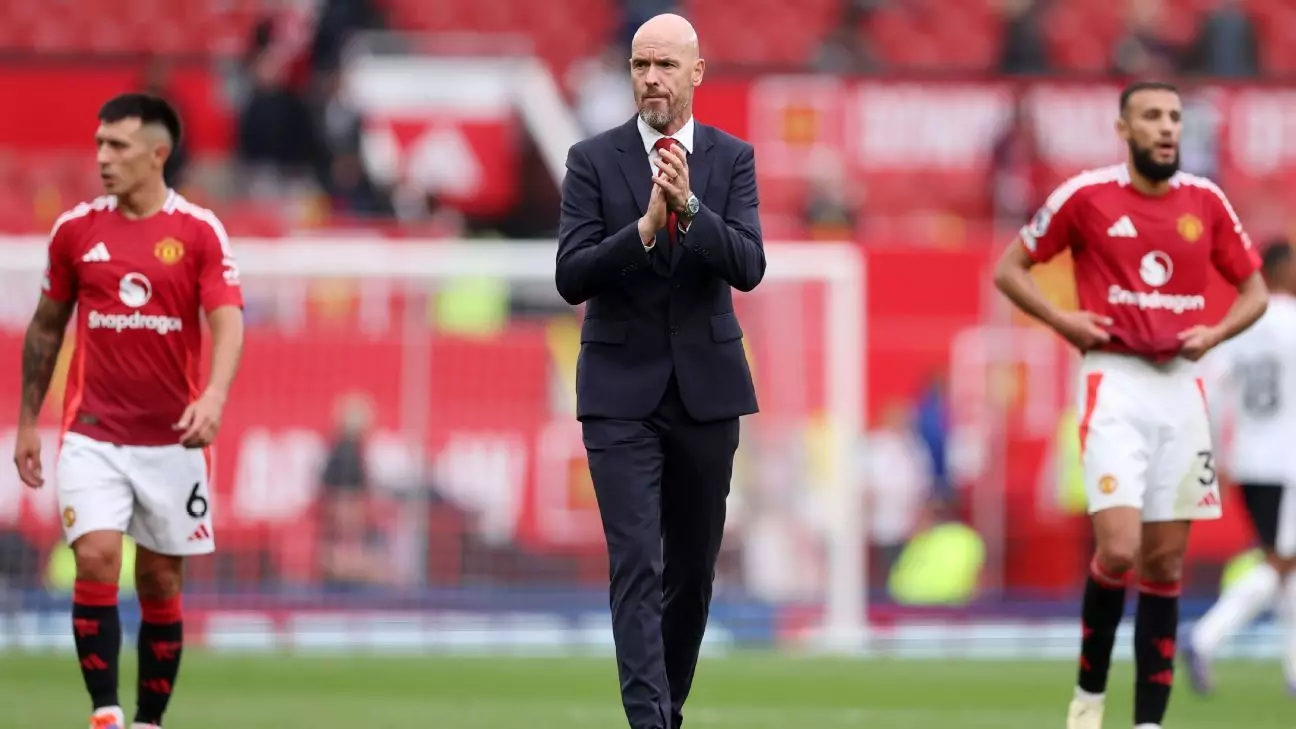Erik ten Hag’s tenure as Manchester United manager has reached a critical juncture. The club’s recent form has raised eyebrows, culminating in a heavy 3-0 defeat to their arch-rivals Liverpool before the international break. This loss not only affected the team’s confidence but also amplified the scrutiny surrounding Ten Hag, leaving him to grapple with the expectations of club executives who are eager for results. With key figures like CEO Omar Berrada and sporting director Dan Ashworth previously expressing their support, the duality of backing and rising pressure creates a precarious balance for the Dutch coach heading into the must-win match against Southampton.
In football, the need for victories is paramount, and Erik ten Hag is acutely aware of this reality. Ahead of the Southampton clash, he conceded during a press conference that the ongoing support from the club’s leadership hinges on delivering positive results. “In football, you have to win; that’s clear,” Ten Hag articulated, acknowledging the need for accountability in order to meet the club’s high ambitions. After finishing eighth in the previous Premier League season and concluding on a high note with the FA Cup triumph, the weight of expectation has only intensified with the new season presenting a shaky start of two defeats within the first three matches.
Ten Hag’s belief in shared responsibility reflects a larger narrative that encompasses the total transformation Manchester United is undergoing. Acknowledging the disruptive changes within the club—including new leadership, revamped structures, and ownership—he stressed that moving past these challenges requires unity. The former Ajax manager’s insights remind us that while he is at the helm, the intricate dynamics of the club’s recent turmoil extend beyond mere tactical adjustments. His emphasis on a collective effort suggests that the path to success will be navigated together, which could instill a sense of solidarity among players and staff alike.
In a show of solidarity, Ten Hag publicly defended his summer signing, Matthijs de Ligt, who faced criticism following a poor performance that led to a halftime substitution in the Netherlands’ match against Germany. Ten Hag’s comments reflect a protective stance, indicating his belief in De Ligt’s resilience and character in overcoming adversity. He highlighted that the scrutiny on the player should be contextualized within the national team’s framework rather than his club performance. Such defense from the manager not only boosts the player’s confidence but also demonstrates Ten Hag’s commitment to fostering a supportive environment amidst intense pressure.
Looking Ahead
As Erik ten Hag stands at this crossroads, the coming weeks will be crucial for his future at Manchester United. The convergence of high expectations and recent underwhelming performances will demand not only tactical ingenuity but also an ability to motivate and galvanize a squad that has encountered significant upheaval. With the focus now firmly on results, Ten Hag’s journey serves as a testament to the pressures of top-flight football, where success is measured not just by vision, but by tangible outcomes on the pitch. The upcoming matches present both a challenge and an opportunity for Ten Hag to demonstrate his capabilities, reigniting the hopes of Manchester United’s passionate fanbase.

Leave a Reply